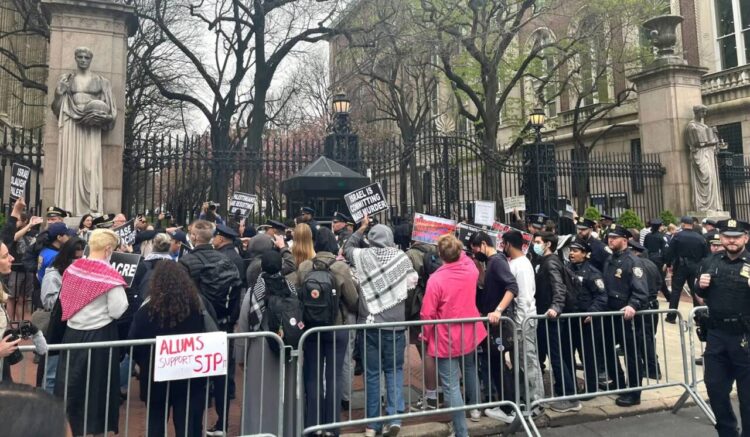After unsuccessful negotiations between student organizers and academic leaders, Columbia University has initiated suspensions for those who did not comply with the university’s ultimatum. The ultimatum, issued in a letter on Monday morning, mandated the dismantling of encampments by 2 p.m. ET or facing suspension, resulting in ineligibility to complete the semester in good standing.
University President Nemat Minouche Shafik disclosed the failure of negotiations, emphasizing the necessity of the measure due to the disruptive impact of the encampments on campus activities, particularly concerning the well-being of the university’s Jewish students and faculty.
“We have begun suspending students as part of this next phase of our efforts to ensure safety on our campus,” said Ben Chang, a university spokesperson, during a briefing on Monday evening.
President Shafik addressed key demands of the protesters, announcing Columbia’s decision not to divest from investments in Israel. Instead, she proposed investments in health and education in Gaza and pledged greater transparency in the university’s financial holdings.
Despite the university’s actions, student demonstrators remain steadfast in their demands, including divestment, financial transparency, and amnesty for those disciplined for participating in the protests. Leaders of the Columbia Student Apartheid Divest coalition reaffirmed their commitment to their cause, highlighting the human toll of the conflict in Gaza.
The developments at Columbia coincide with police intervention at the University of Texas at Austin, where numerous students were arrested during a pro-Palestinian rally. As tensions escalate, pro-Palestinian demonstrations on campuses nationwide continue to fuel debates on free speech and hate speech, revealing divisions within university communities. Civil rights groups have criticized law enforcement tactics during protests, underscoring the complexity of managing dissent while maintaining campus security amidst polarizing issues.

















Comments